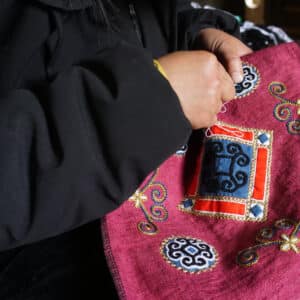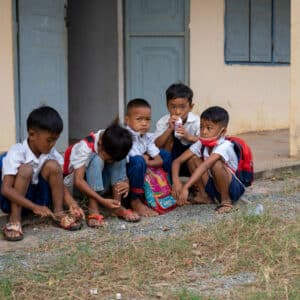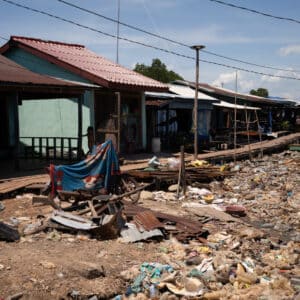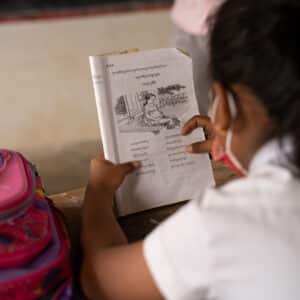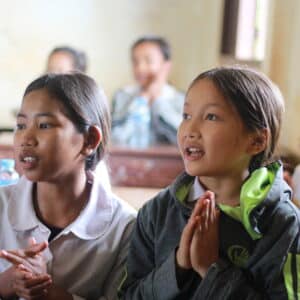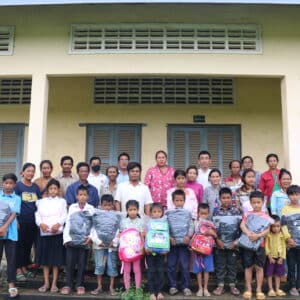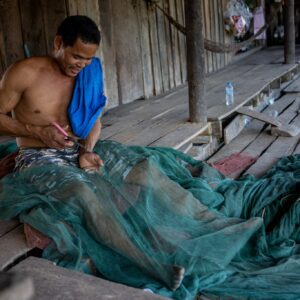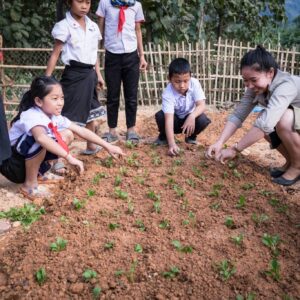In KohnKaen village, a rural settlement in Vientiane province home to approximately 1,400 inhabitants mostly from ethnic minority groups, internet access, and smartphones are a recent, but very welcome, arrival.
Souphaphone Jalernsouk borrows her parents’ smartphone whenever she can to listen to English music, even though she doesn’t understand the words yet. At just 10 years of age, Souphaphone is already thinking about her future and that of her family’s – how English could enable her to leave her village and travel to neighbouring Thailand or Vietnam to support them.

Souphaphone is one of only a few children in her school to have access to the internet via her parent’s smartphone. For populations living in rural areas without paved roads, access to distance-learning and technology is out of reach as only 0.3% of households have fixed broadband internet access at home, 2% a computer, 49% a TV and 15% a radio.
SomBat Xongyer – a primary school principal in NamLao village, Vientiane province – says that schools like his need support not just in terms of improved and affordable connectivity, but also basic training in how to use digital technology as just 7% of people in rural Laos aged 15-49 have used a computer, and less than 20% have used the internet in their lives.
“We don’t offer our students any kind of online learning yet. I don’t know how to teach online, we don’t have enough ICT equipment and I also don’t know how to use the equipment.”
For Aide et Action, the challenges posed by Covid-19, have provided an opportunity to better understand the needs of principals like SomBat and support teachers and schools to offer flexible learning strategies for students like Souphaphone in times of crises.
In April last year, Aide et Action – in partnership with The Ministry of Education and Sport, the ICT Center, the Research Institute for Education Sciences, and the National University of Laos – piloted a Lao learning app for kindergarten and primary school students. The app seeks to improve digital and numerical literacy and will be divided into six levels tailored to different literacy levels.
To date, the four levels have been officially approved and are available to download for free via Google Play. The remaining two levels are currently being developed and tested. In addition to training teachers on how to use the app, content will also be available offline to ensure better continuity of education if schools close again.
Some of this story features in a longer article written by Aide et Action in partnership with Southeast Asia Globe highlighting barriers to education in Laos.




